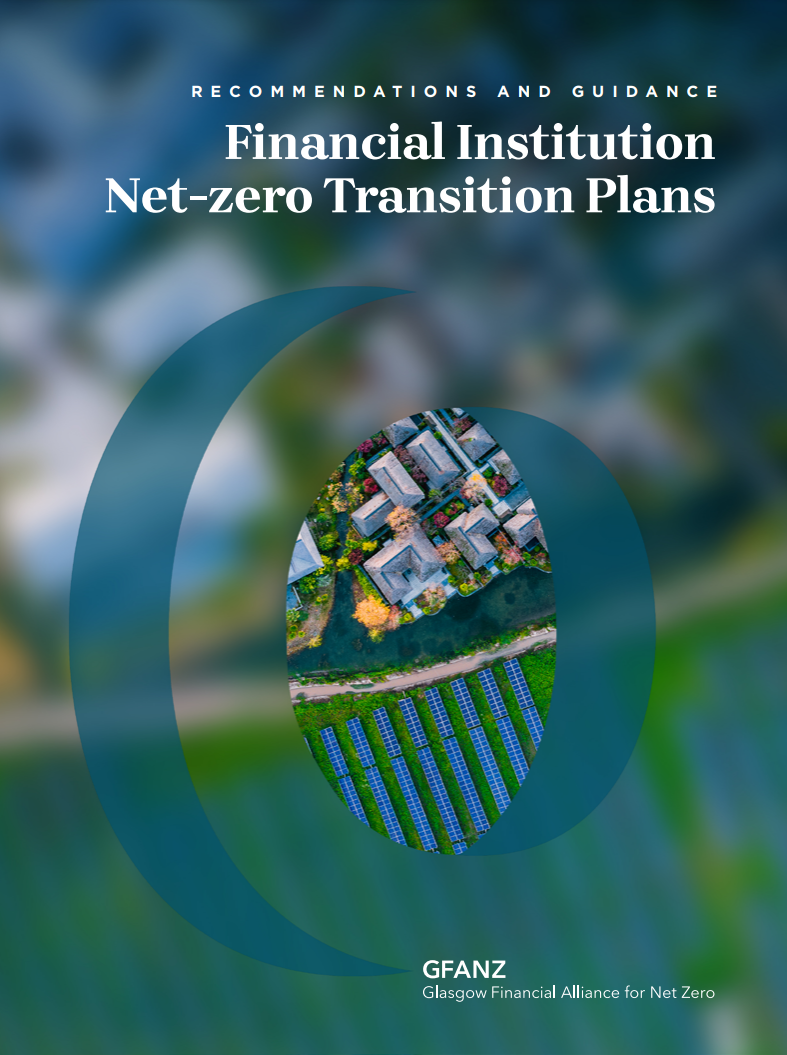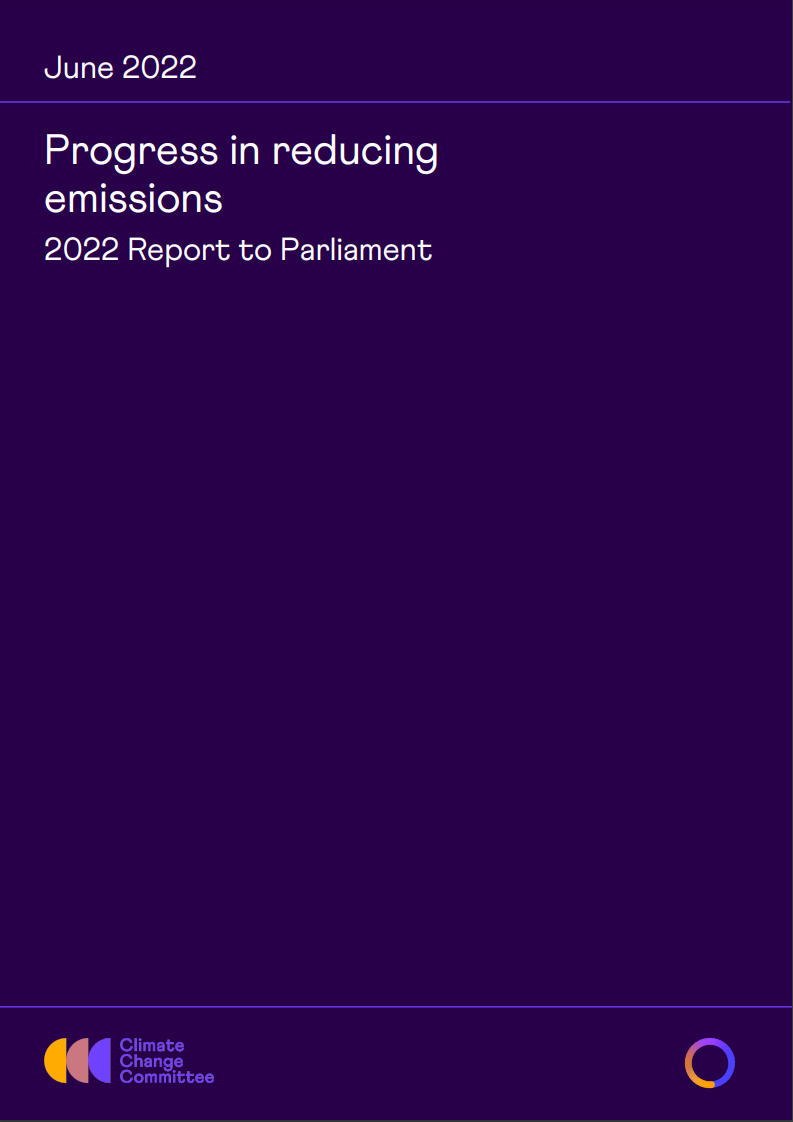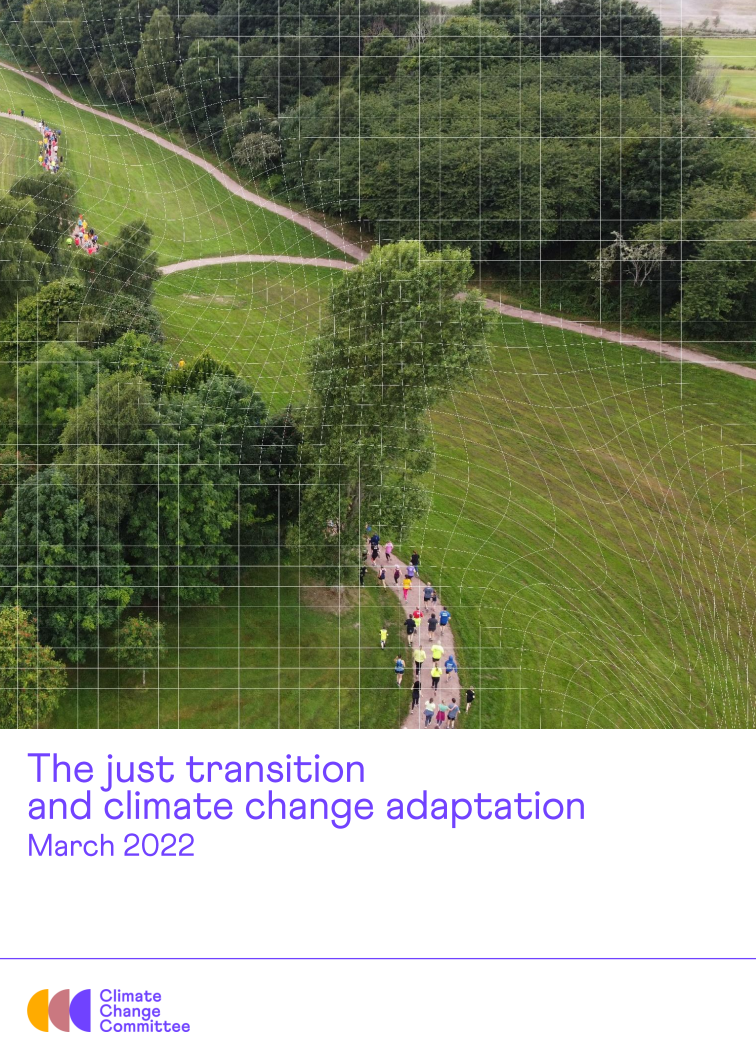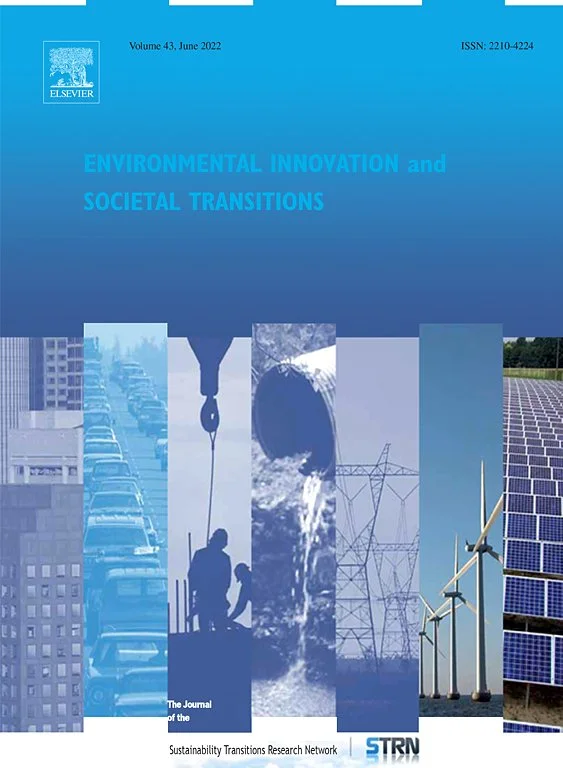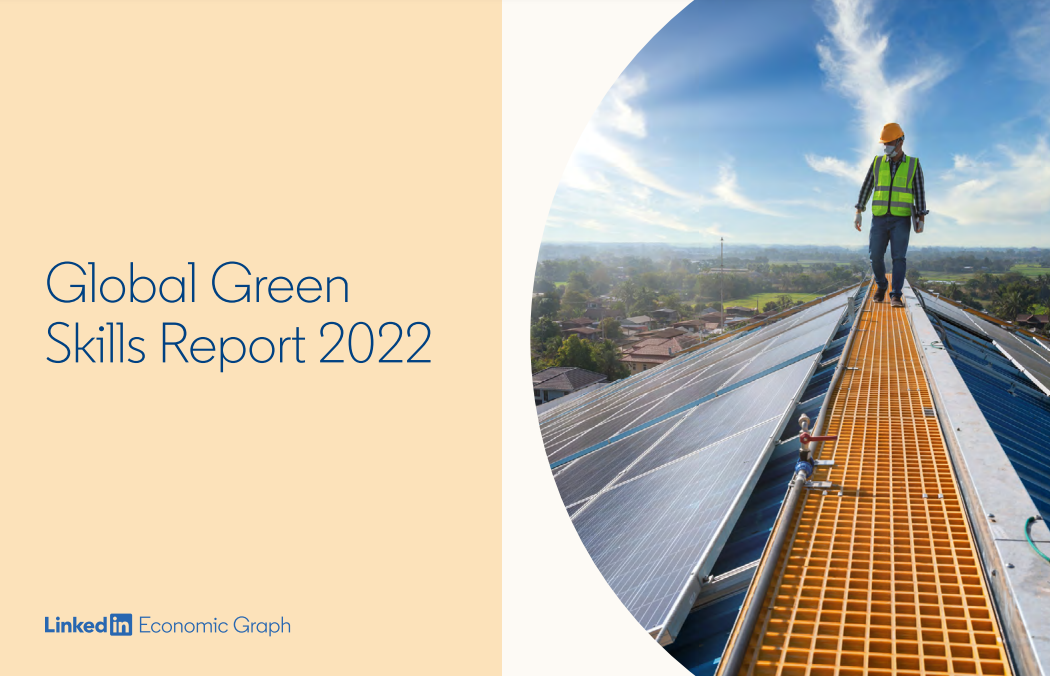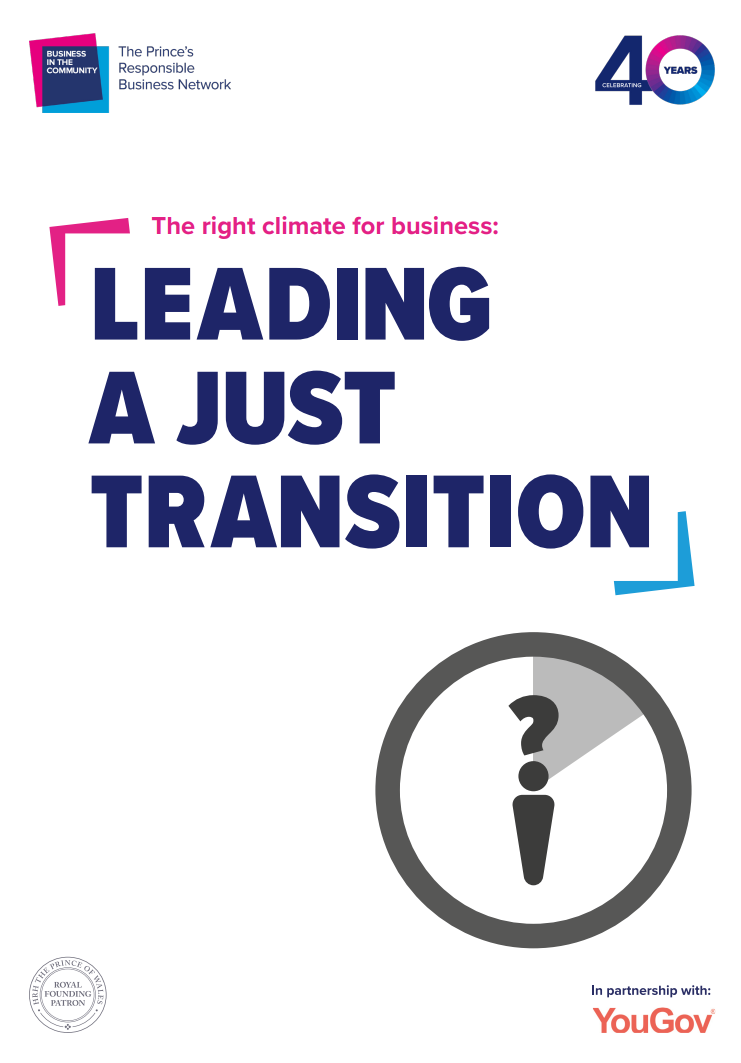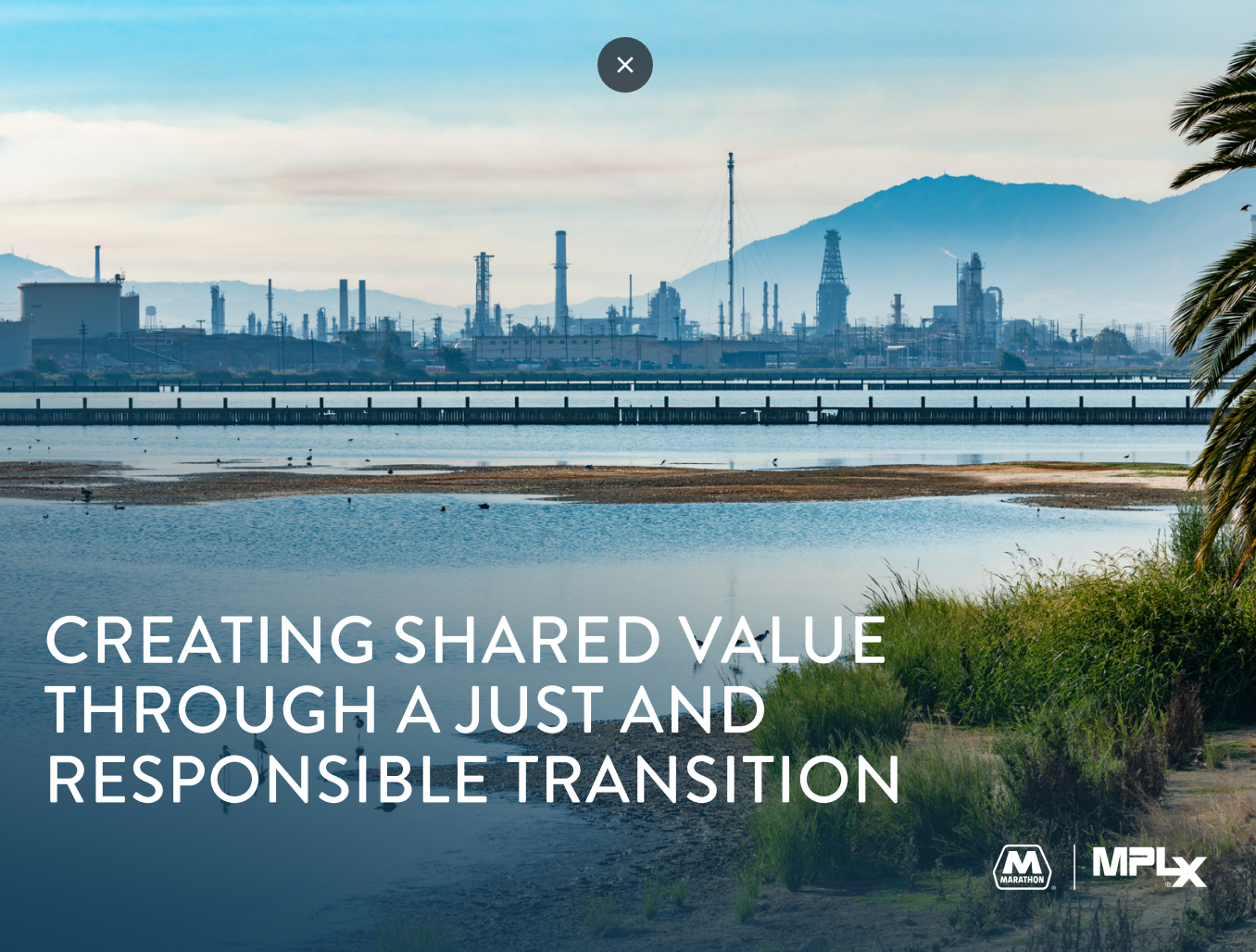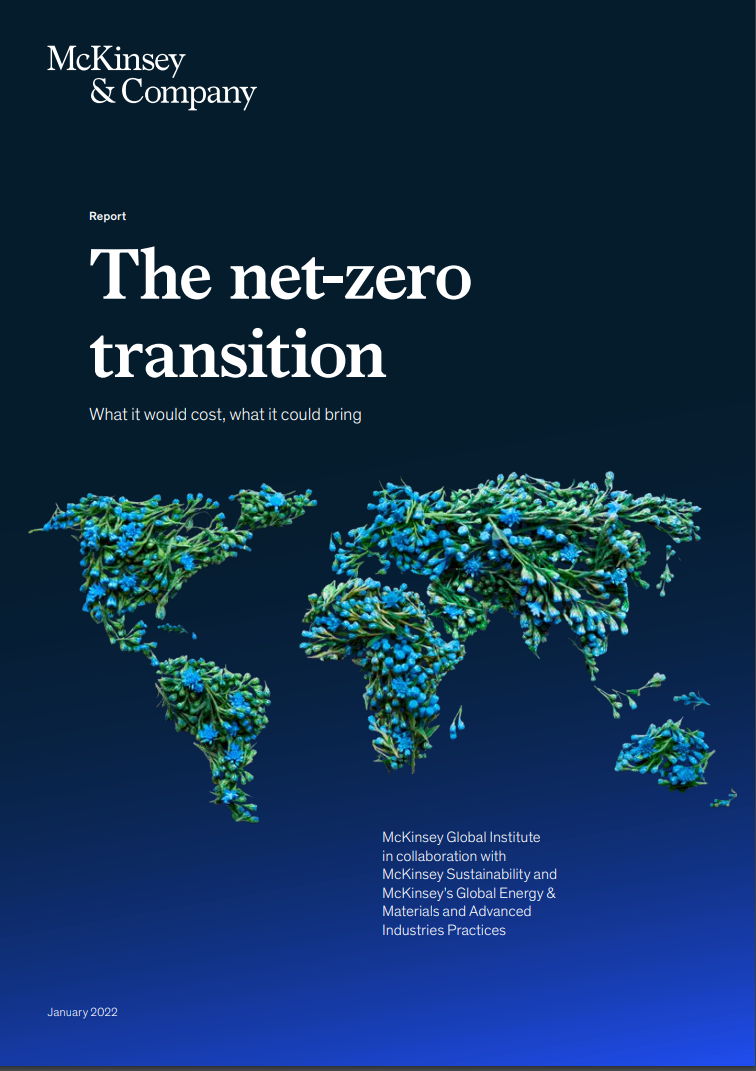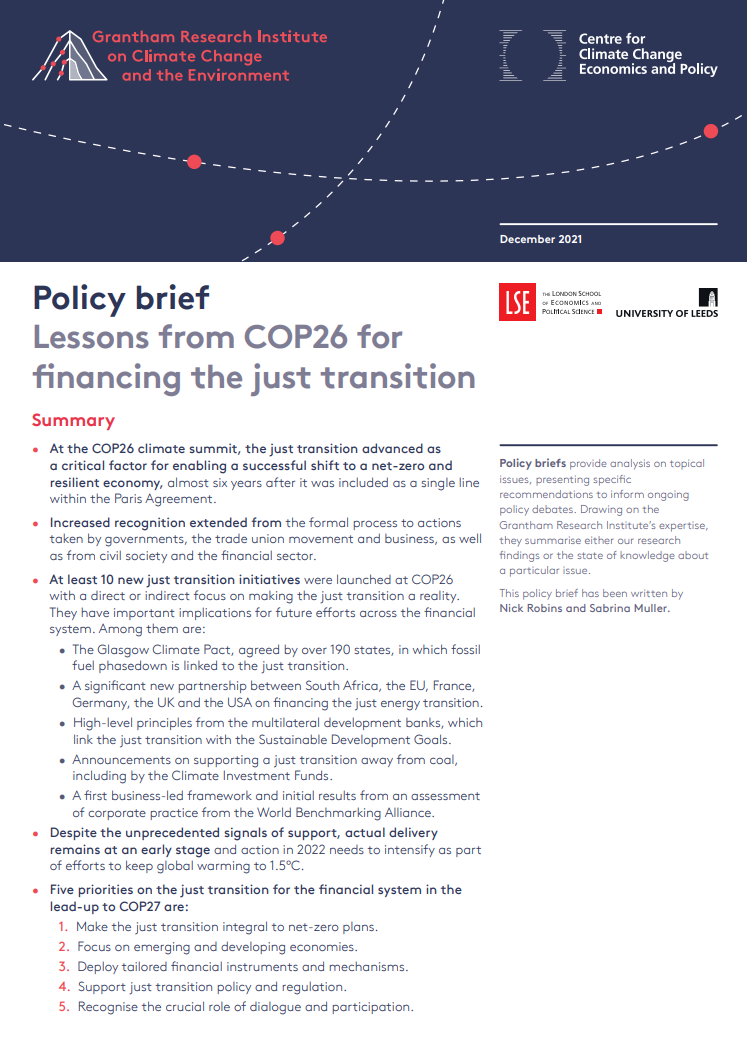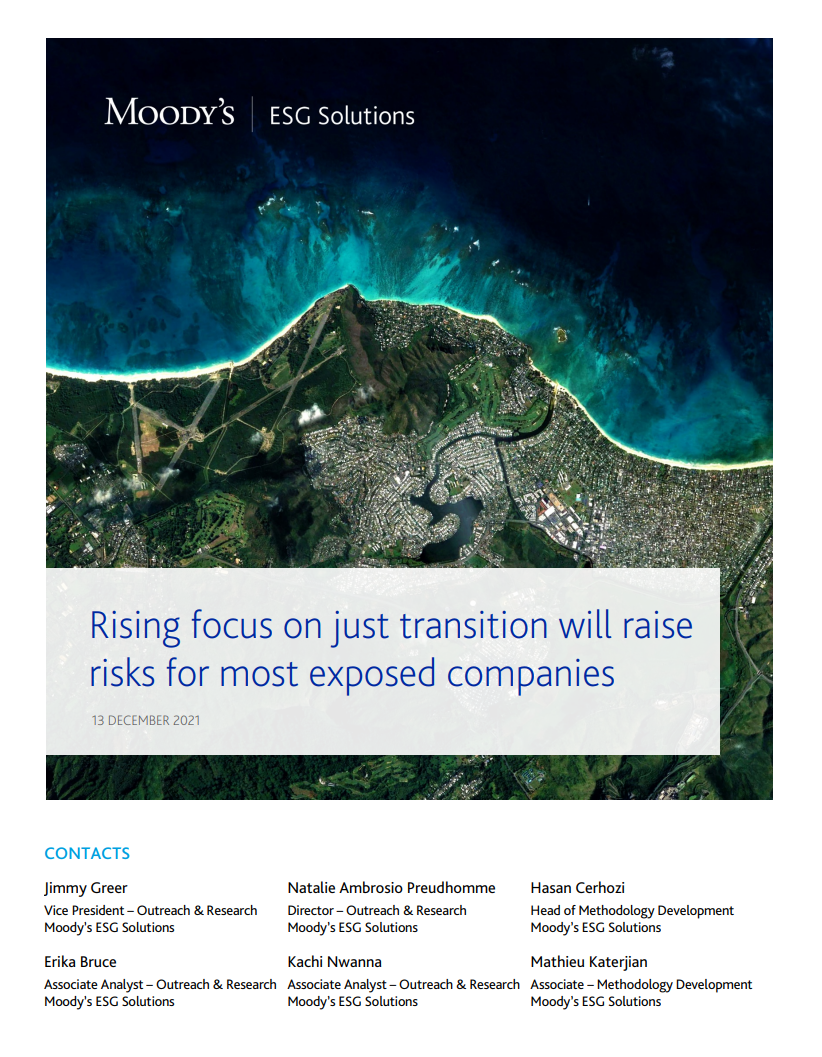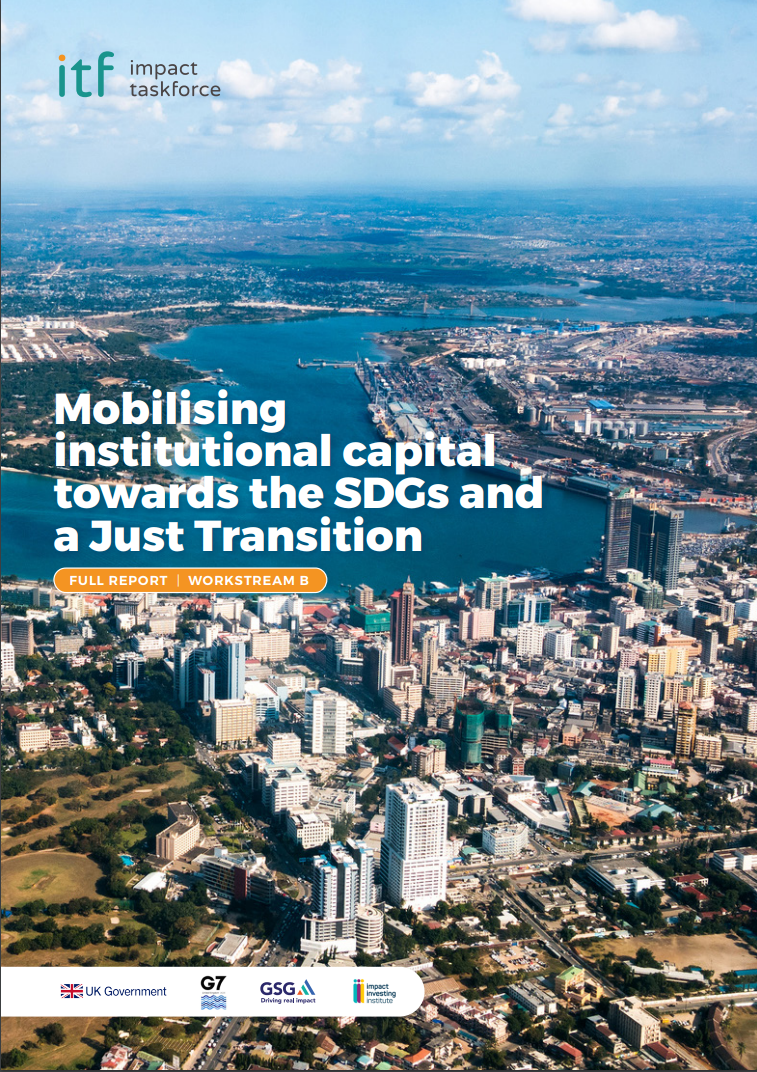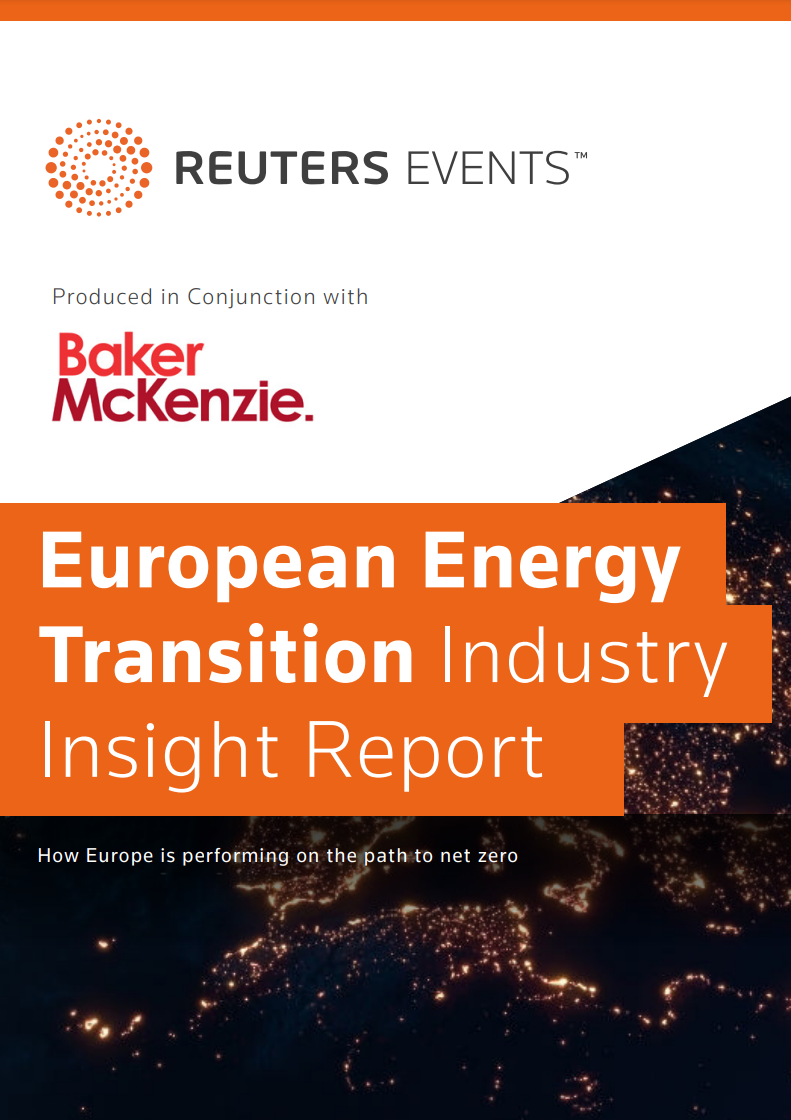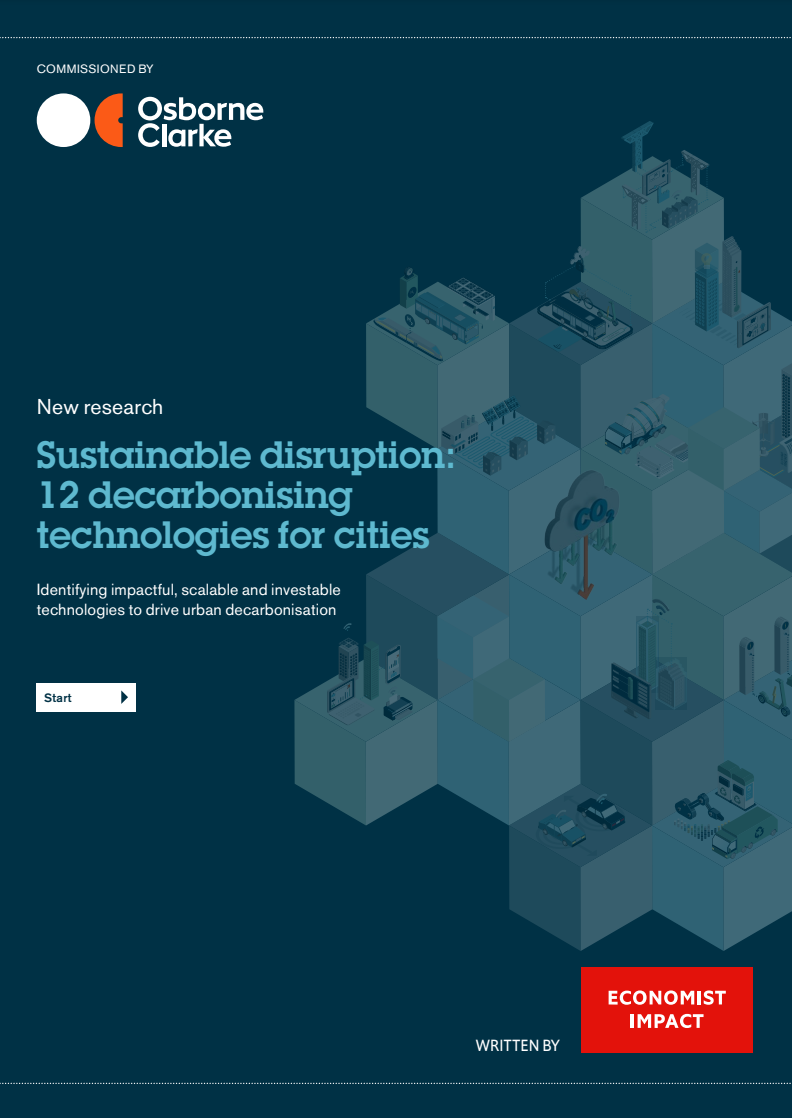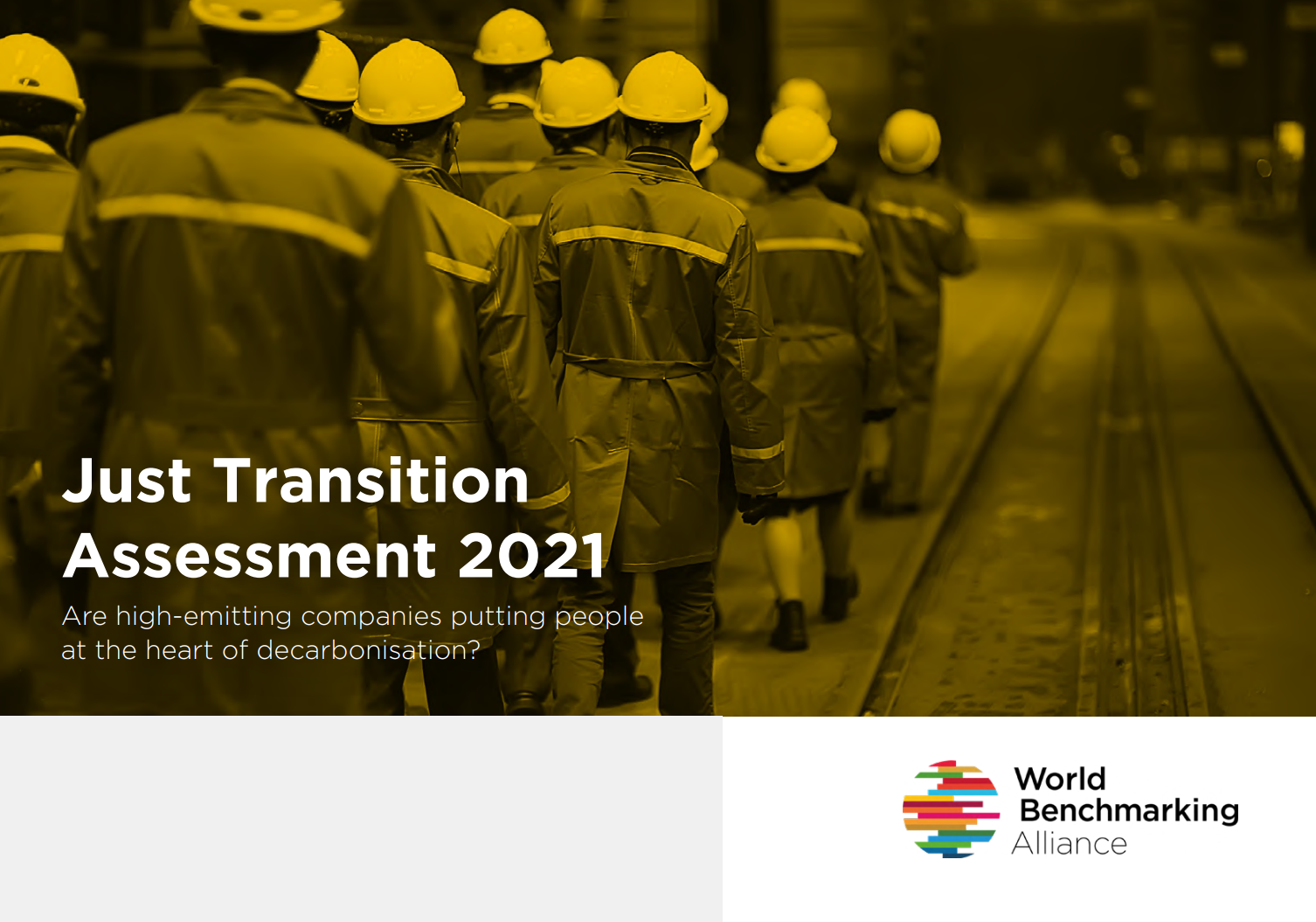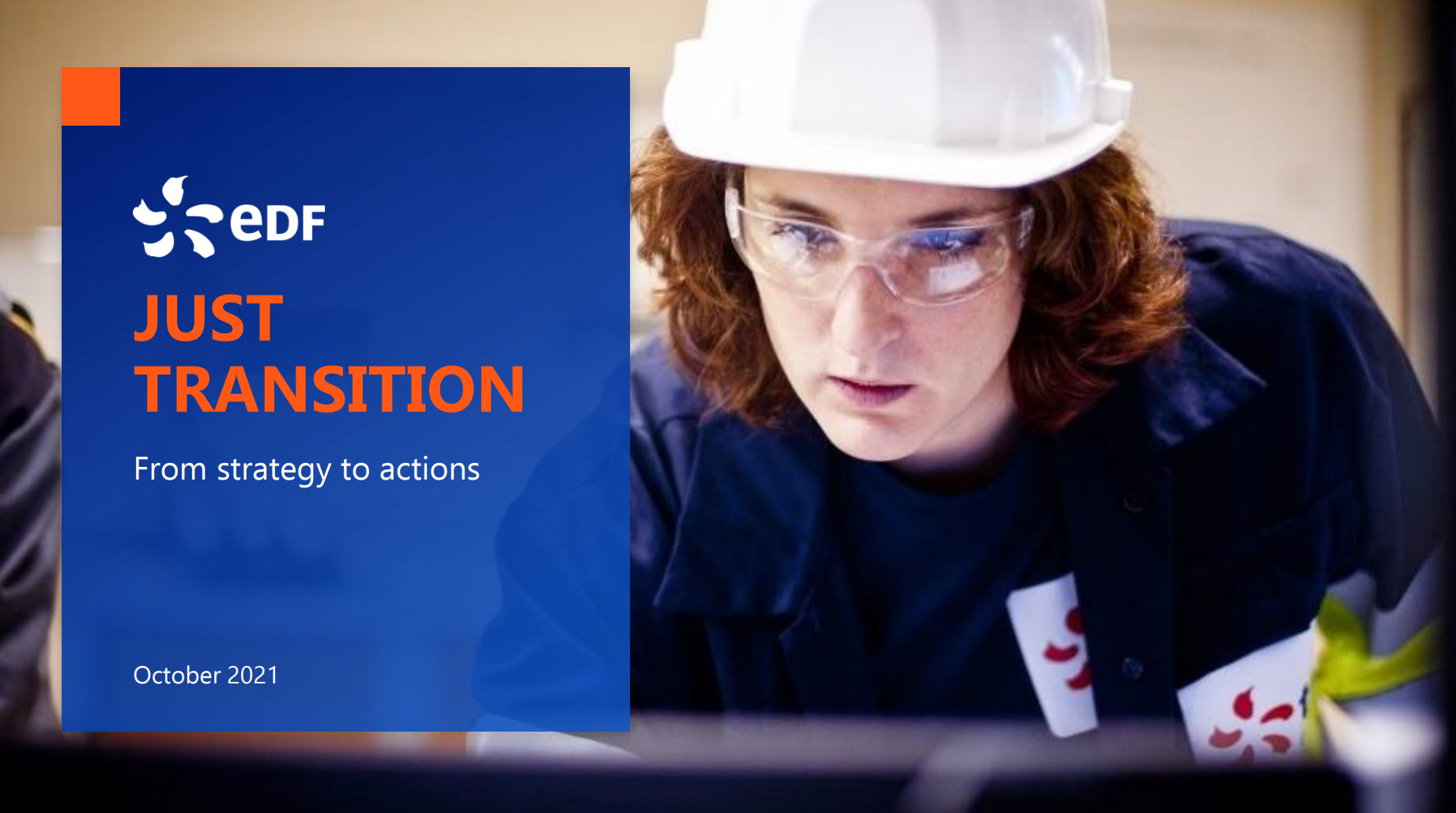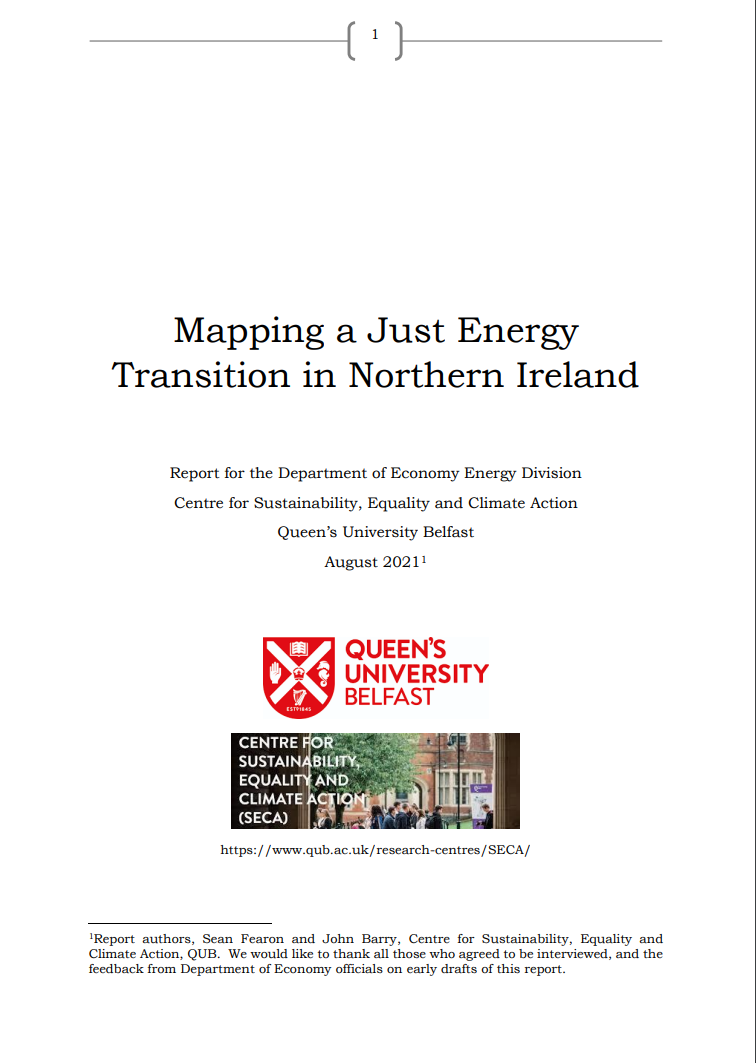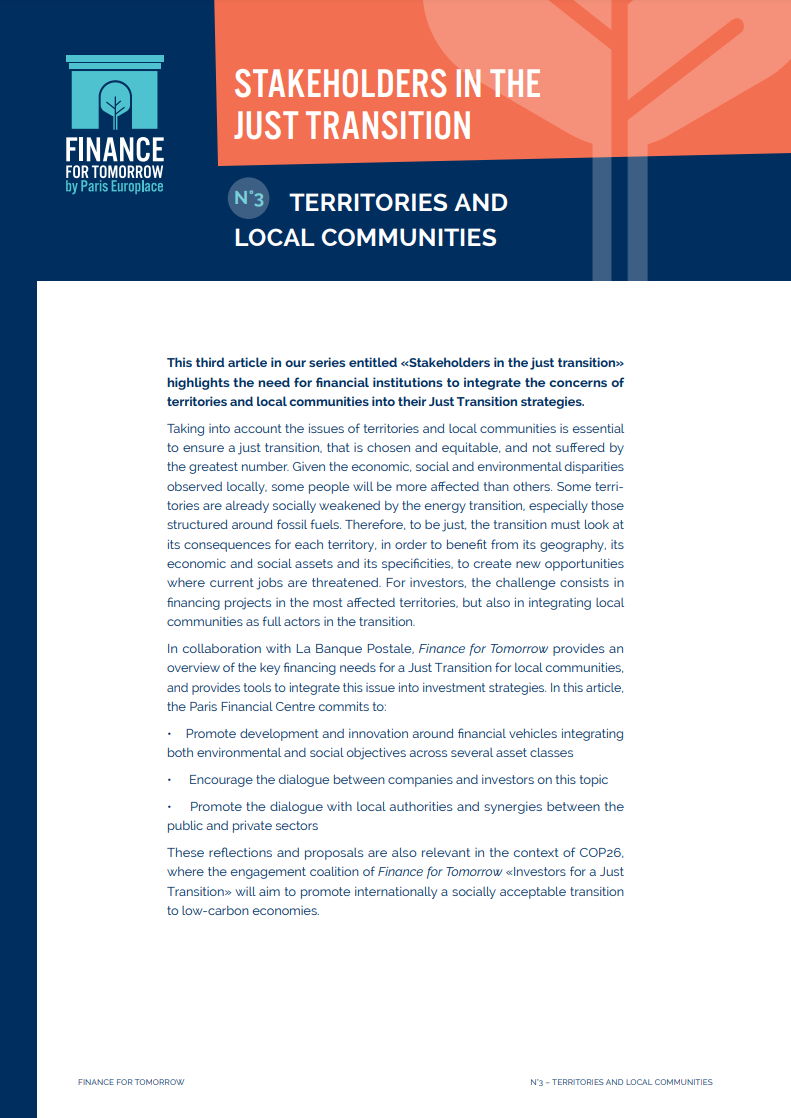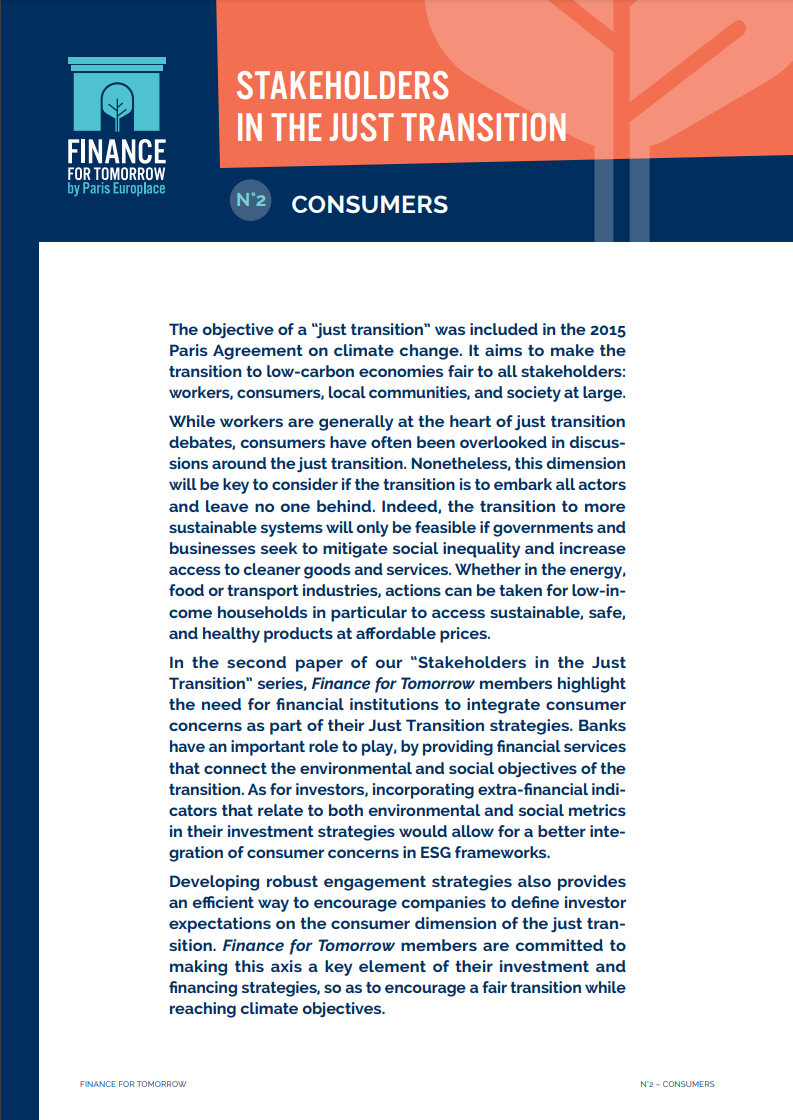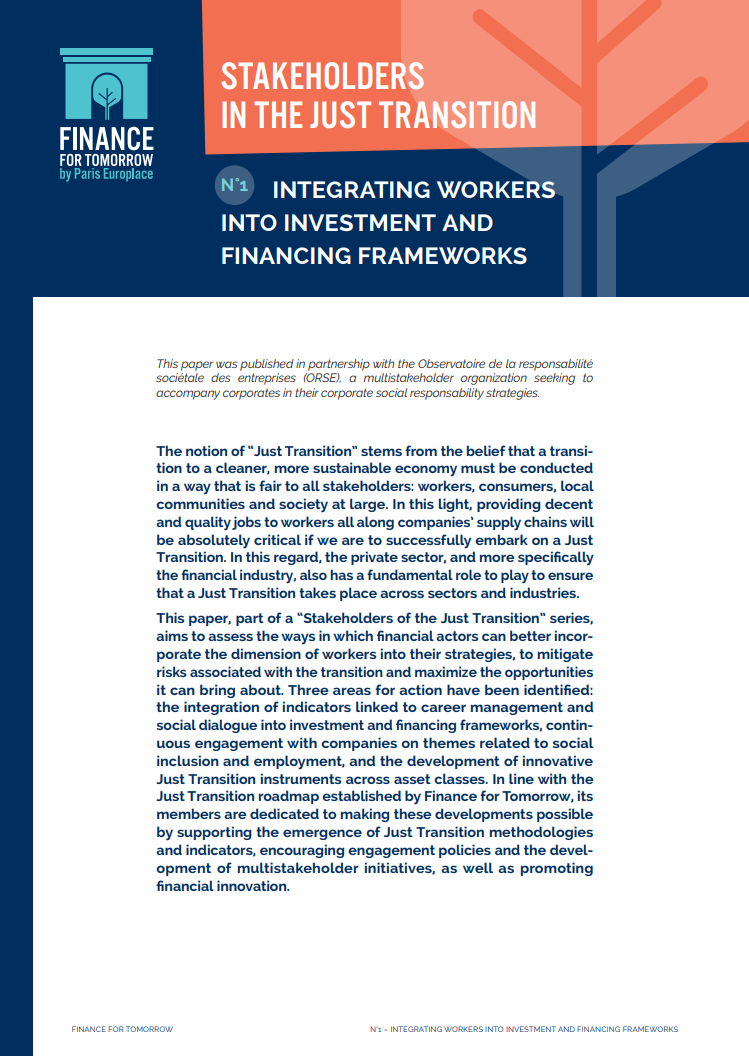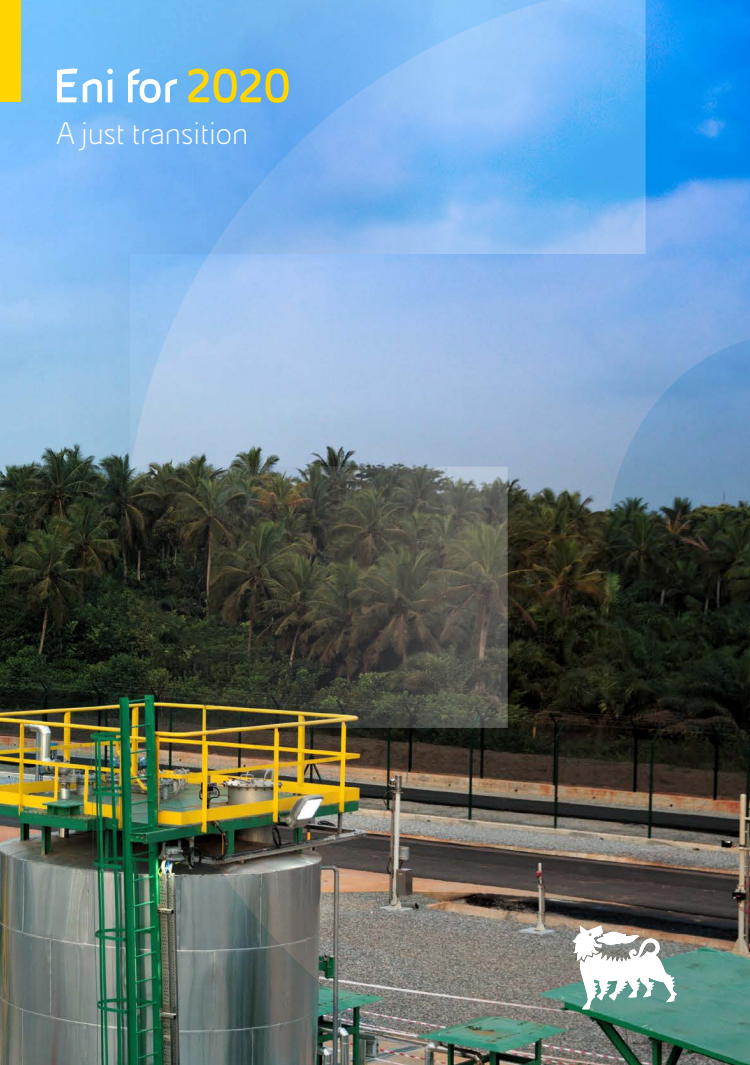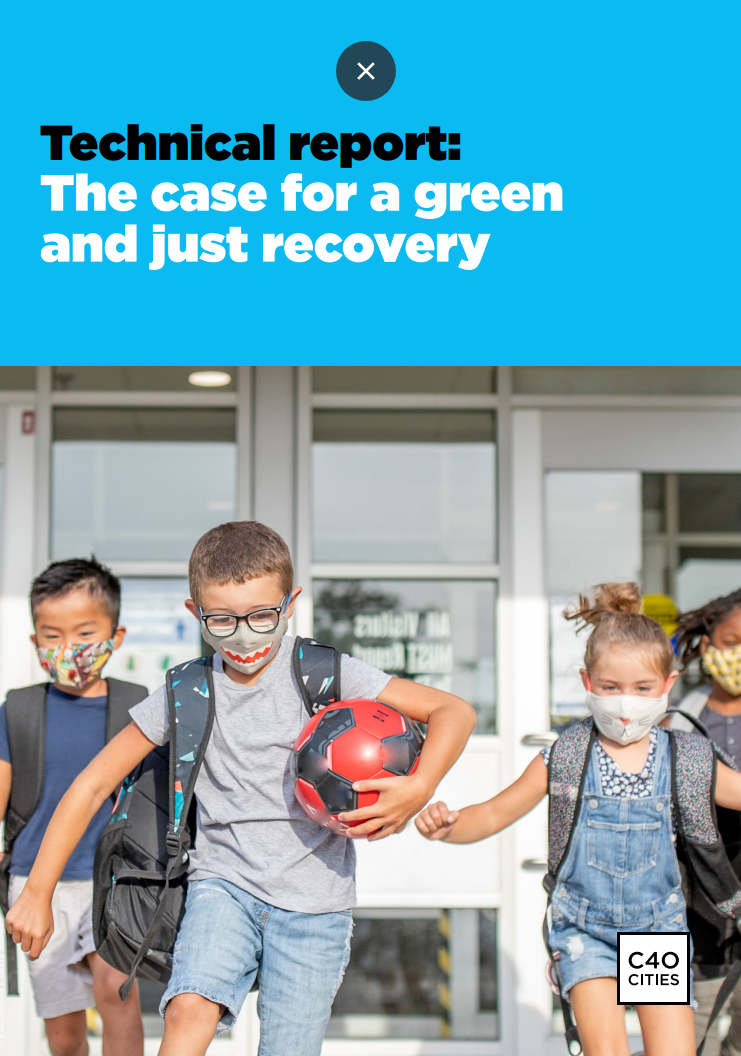THE JUST ENERGY TRANSITION - LIBRARY
We’ve collated key publications on a Just Energy Transition in one place, filterable by publication type.
Have we missed something? Let us know by completing this form.
FILTER: All | Articles | Frameworks | Guidance | Initiatives / Funding | Legislation | Reports | Standards | Tools | Webinars
>> REPORTS
Author(s): Glasgow Financial Alliance for Net Zero (GFANZ)
Description: This report introduces GFANZ’s proposed recommendations and guidance to deliver a global framework for ambitious and credible net-zero transition plans for financial institutions across the financial sector.
Author(s): Climate Change Committee
Description: This is the CCC's 2022 progress update to Parliament. Chapter 14 covers cross-cutting issues, many of which surround the 'just' element of transition. These include public engagement and choices, fair funding and affordability, workers and skills, and adaptation.
Author(s): Scottish Widows
Description: This report examines how job creation, productivity enhancements, and reducing inequality are all possible in the transition to a low carbon economy. But without considering the challenges and risk to communities, workers and people, these opportunities may never be realised. It advocates for a ‘just transition’ that is as fair and inclusive as possible as the world decarbonises.
Author(s): Climate Change Committee, Scottish Government
Description: This report considers how adaptation to a changing climate links to the broader concept of a ‘just transition’ and how the distrubutional consequences of both climate impacts and adaptation actions can be addressed as part of policy making.
Author(s): University of Strathclyde, University of Edinburgh
Description: A ‘Just Transition’ seeks to protect the rights of the workforce throughout transition away from high carbon industries and towards sustainable economic sectors. This includes reskilling where appropriate and a fair distribution of benefits, alongside recognition and participation of affected communities. Drawing on a systematic literature review and a case study delineated by the 38 English Local Enterprise Partnerships we analyse the variety of skills required to support a just transition to more decentralised and smart low carbon energy systems (defined as ‘smart local energy systems’) in England. We found that more attention is required in assessing skills provision, alongside upskilling the workforce, or risk the transition being unjust. Regional disparities in skills availability could be mitigated through a local skills provision system whereby stakeholders can review training opportunities, identify emergent skill-gaps and leverage investment. In addition, greater devolution to local authorities would enable them to support stakeholders more effectively.
Author(s): LinkedIn Economic Graph
Description: This report provides new data on green skills and jobs from all across the world, to empower policymakers, governments and business leaders with actionable insights to help them transition the global workforce to a green economy future. It also analyses differences in the green transition for each country and sector.
Author(s): Deloitte, Reuters Events
Description: The report outlines the biggest challenges and opportunities facing industry leaders as they plan and execute their decarbonisation strategies.
Author(s): BITC
Description: This report shares key research insights and recommendations to deliver a fair and inclusive transition to a net-zero, resilient future where people and nature thrive.
Author(s): Marathon Petroleum
Description: This report details Marathon Petroleum's approach to addressing potential social impacts in the context of the energy transition across stakeholder engagement, human capital management, community involvement and investment. The report specifically addresses alignment withthe ILO’s Guidelines for a Just Transition and discusses the dedicated forums within the company that help facilitate internal and external engagement on topics including climate risk and the potential social impacts of the global energy transition.
Author(s): McKinsey
Description: This report examines the economic transformation that a transition to net-zero emissions would entail. It provides estimates for the changes up until 2050 in demand, capital spending, costs, and jobs, for sectors that produce about 85 percent of overall emissions and assess economic shifts for 69 countries.
Author(s): LSE GRI
Description: This policy brief reviews the importance of a just transition of the workforce and the creation of decent work and quality jobs. The brief also assesses 10 new initiatives and makes five detailed priority proposals for financing the just transition in 2022.
Author(s): Moody's
Description: Our latest report exploring just transition readiness found that the most-exposed companies globally are generally under-prepared for the coming disruption to workforces, supply chains, communities and consumers caused by the transition to net zero. We assessed approximately 1,000 companies in eleven sectors identified as most exposed to carbon transition, across seven just transition-relevant criteria. In the report we also use our physical risk datasets to explore how high-emitting sectors are also significantly exposed to physical climate hazards, for example, heat and water stress, with implications for the health of workers and costs for communities. We expect that companies that fail to demonstrate how they will implement policies and programmes to manage the social consequences of the transition to a low-carbon economy are likely to face greater scrutiny from investors, policymakers and consumers, raising potential market, reputational and legal risks.
Author(s): Clifford Chance LLP, CDC Group, IHRB
Description: This paper considers how banks are addressing and can support a just transition through their climate-related financing activities, and the challenges and opportunities this presents.
Author(s): Impact Investing Institute
Description: The report provides concrete and actionable recommendations for G7 policy makers, other national policy makers and regulators, institutional asset owners, multilateral development banks and development finance institutions, asset managers, impact investors, advisors and ecosystem builders. The report also includes a full set of examples and case studies across asset classes that demonstrate how existing and future vehicles can pursue bold environmental and social impact while being attractive to institutional investors.
Author(s): Reuters Events & Baker McKenzie
Description: Countries have been setting goals for net zero greenhouse gas emissions by 2050s, and intermediate objectives for cuts by the 2030s. The energy transition plays a fundamental part in achieving net zero. The focus for this survey is to ask: How does this play out thought at the corporate level and how far along are companies to delivering on these goals?
Author(s): Osborne Clarke & Economic Impact
Description: Written against the background of the COP26 summit, this report acknowledges that there is no silver bullet for climate change in cities. Instead, there is an arsenal of technologies that can be deployed to drive forward the decarbonisation imperative – 12 of which are highlighted and explored in this report.
Author(s): FSB
Description: This report aims to understand the progress already made by small businesses to use energy more efficiently, reduce waste, change transport habits, and have a smaller impact on the environment. The report also looks at some of the key barriers faced by small businesses, and makes a series of recommendations as to how these barriers can be overcome, and how governments and local authorities across the UK can better support small businesses to reach net zero.
Author(s): World Benchmarking Alliance
Description: The World Benchmarking Alliance’s pilot Just Transition Assessment covers 180 companies across three sectors: 100 oil and gas companies, 50 electric utilities and 30 automotive manufacturers. These assessments look at the social elements of the companies’ transition to a low-carbon future. They are based on the companies’ publicly available disclosures, which are assessed against our core social indicators and our new just transition indicators.
Author(s): Cambridge Institute for Sustainability Leadership
Description: CISL’s new report, Risk Sharing in the Climate Emergency: Financial regulation for a resilient, net zero, just transition, launched in Glasgow on COP26 Finance Day, highlights five key areas of action for policymakers, private and public financial authorities and the finance sector, which if implemented will enable a radical global transformation to protect lives and livelihoods, now and in the decades ahead.
Author(s): FJTA, LSE GRI
Description: This report sets out what the delivery of a just transition in the UK will require, highlights initial efforts by leading financial institutions towards achieving a just transition, and points to what is needed to achieve system-wide change. The report makes recommendations for action across three priority areas: finance, place and policy.
Author(s): EDF
Description: This presentation outlines EDF's net-zero pathway, its Just Transition scope of action and how it is supporting consumers, employees, communities and suppliers through the energy transition.
Author(s): IEA
Description: This report outlines a set of actionable recommendations to deliver a people-centred transition which ensures the benefits and costs involved in the transformation of the energy system are distributed fairly and in a way that protects the most vulnerable in society. The recommendations are intended to influence the clean energy policies and programmes of governments, funders, investors and international organisations globally in order to maximise their benefits to people and ensure the overall success of clean energy transitions on the path to net zero.
Author(s): Department of Economy Energy Division, by the Centre for Sustainability, Equality and Climate Action, QUB
Description: This report maps the potential for a just energy transition in Northern Ireland from socio-technical and political economy perspectives, as well as the Northern Ireland energy system, within the context of the need for a rapid decarbonisation.
Author(s): LSE GRI
Description: This report sets out a framework of just transition expectations that investors can use in conducting due diligence and assessments of companies, engaging with portfolio holdings and allocating capital. It also highlights areas for priority action by investors and others as the just transition moves from the margins to the mainstream of the climate agenda.
Author(s): ShareAction
Description: This briefing sets out how investors are addressing the just transition. The investment sector is at the very beginning of getting to grips the significant challenge of how to transition to a low-carbon economy while respecting and protecting the rights and interests of workers, communities, consumers and citizens. Too few investors are undertaking human rights due diligence, using social dialogue practices and ensuring their investments are benefitting local communities and workers.
Author(s): Finance for Tomorrow - The Just Transition Taskforce
Description: The third article in their series entitled highlights the need for financial institutions to integrate the concerns of territories and local communities into their Just Transition strategies.
Author(s): Finance for Tomorrow - The Just Transition Taskforce
Description: In the second paper of their “Stakeholders in the Just Transition” series, Finance for Tomorrow members highlight the need for financial institutions to integrate consumer concerns as part of their Just Transition strategies.
Author(s): Finance for Tomorrow - The Just Transition Taskforce
Description: This paper assesses the ways in which financial actors can better incorporate the dimension of workers into their strategies, to mitigate risks associated with the transition and maximize the opportunities it can bring about. Three areas for action have been identified: the integration of indicators linked to career management and social dialogue into investment and financing frameworks, continuous engagement with companies on themes related to social inclusion and employment, and the development of innovative Just Transition instruments across asset classes.
Author(s): Eni
Description: This report outlines Eni's contribution to a just transition and recounts its path to meet these challenges. It also explores Eni’s business model and Operational Excellence, i.e. the enabling factors for achieving strategic objectives, as well as the importance of the Alliances for Development for creating value in the countries where Eni operates.
Author(s): C40 Cities
Description: This report highlights that almost all of the current COVID stimulus funding is propping up a high-carbon recovery and urges decision-makers to re-consider and invest in lower emissions, cleaner air and more jobs. It also outlines that the timing of a green and just recovery matters, and presents a clear case for early investment.

